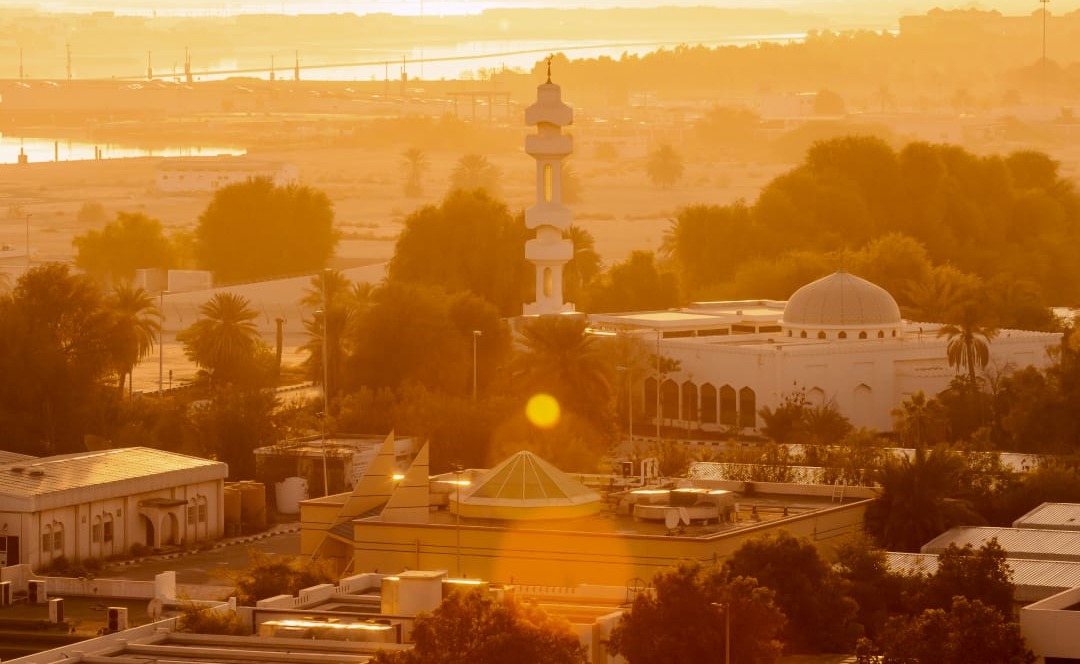Heri Mahbub
40 is not just a number. It is a divine call to return. Maturity of mind, stability of soul, and accumulation of life experiences - all are great capital for worshiping wholeheartedly. Come on, read, understand and practice this prayer at the age of 40.

Kordoba Cordoba - In surah Al-Ahqaf verse 15, Allah Swt. provides valuable lessons to humans who are entering their 40s.
So when he is an adult and reaches forty years of age he prays:
(O my Lord, show me to be grateful for Your blessings which You have bestowed upon me and my parents and so that I can do good deeds which You are pleased with; grant me kindness by (giving kindness) to my children and grandchildren. Verily I repent to You and verily I am one of those who submit)." (Qs Al-Ahqaf: 15)
In this verse, Allah SWT specifically mentions the human lifespan of 40 years. This demonstrates how important it is for humans to pay attention to it. Scientific research also indicates that at 40, humans reach the peak of their lives, physically, intellectually, emotionally, and spiritually.
He has truly left behind his youth and stepped into true adulthood. It is not surprising that leading figures emerge at the age of 40.
Even the Prophet Muhammad SAW was sent by Allah to become an apostle at the age of 40, as explained by Ibn Abbas radhiyalahu 'anhu:
"From Ibn Abbas, he said: Rasulullah was appointed a Prophet when he was 40 years old." (HR. Al-Bukhari).
From the explanation above, we as Muslims are commanded by Allah SWT to reflect upon ourselves upon reaching the age of 40. Like a tree, 40 is the age when its roots and trunk are firmly established. Unlike a young tree, which is still easily swayed by wind and rain.
On the other hand, if a Muslim is 40 or older but his character and personality are immature, he still indulges in sin, he is not serious about his life, and he still neglects his religious obligations, then this situation must be stopped. It's time for us to change course, reflect on ourselves, and resolve to migrate towards a better life.
By understanding the word of Allah SWT in Surah Al-Ahqaf verse 15, there are at least five messages that we must carry out when we reach the age of 40.
1. Increase your gratitude to Allah SWT. When we reach the age of 40, Allah Ta'ala guides us to start praying in Surah Al-Ahqaf verse 15 which begins by asking for taufik, direction and guidance.
"O my Lord, guide me to be grateful for Your blessings that You have given me and my parents."
The age of 40 is the right time to be grateful for so many blessings, because one of the signs of maturity is being grateful a lot, not complaining a lot. Be wiser by being grateful for what you have, not following your ego by worrying about what is lost or missing.
2. Increase your good deeds . Doing good deeds is a tangible demonstration of our gratitude to Allah SWT. If you've reached 40 years of age and haven't maximized the blessings of your age to increase your good deeds, beware! Your age may be unblessed, far from Allah's grace. Allah SWT teaches us to pray:
"...and so that I can do pious deeds that You approve of..."
The age of 40 is a gateway to a higher phase of spiritual maturity. At this point, Allah SWT invites His servants to deep reflection, reaffirm their commitment to worship, and direct all their efforts toward the best provision for eternal life.
This is the time to make His pleasure the main axis of all goals, realizing that every remaining second is a precious opportunity to draw closer to Him with sincere and accepted deeds.
3. Pay attention to the future of children and the next generation. The command to pay attention to the future of children and the next generation can be learned from the prayer contained in Surah Al Ahqaf verse 15.
"...and give kindness to me by (giving kindness) to my children and grandchildren."
A valuable lesson for those of us who have entered our 40s is how crucial this moment is for us to think more seriously about and ensure the spiritual future of our children. This is the most important foundation for ensuring they remain steadfast in Islamic teachings and never forget their eternal provision for the afterlife.
This responsibility doesn't fade as children grow older, even when they become adults and achieve worldly success. Parents must tirelessly remind their children to prioritize the afterlife.
As exemplified by the Prophet Ya'qub (peace be upon him) to his sons and descendants, he asked, What will you worship after me?” me?), not “ What will you eat after me?). This prophetic message clearly shows that attention to one's faith and provision for the afterlife is a top priority that must be continuously emphasized.
4. Immediately repent and pray a lot to ask for forgiveness. The command to repent is taught by Allah in the prayer of His Word,
"...Indeed I repent to You..."
This prayer fragment carries a profound message: when a servant reaches 40, it is time to renew and strengthen his repentance with sincerity. This age marks the maturity of his intellect and life experience, so he should review his spiritual journey, abandon all forms of ignorance and negligence of his youth, and proceed with greater caution in every attitude and action.
On the contrary, it would be a great loss if, at this age of maturity, a person were to fall further into a life of aimlessness and drift further away from Allah SWT. Repentance at this age serves as a reminder of the approaching Day of Reckoning, encouraging a servant to fully return to his natural state and seek God's pleasure.
5. Surrender a lot. The command to surrender and trust is taught at the end of Surah Al-Ahqaf verse 15.
"...and indeed I am one of those who surrender."
Entering the age of 40, a believer should reach the peak of maturity in completely surrendering to Allah SWT. Surrender here is a deeper acceptance of His provisions, accompanied by full confidence in His help.
Many of life's seemingly complex and burdensome problems can, in essence, only be resolved through true trust in God. However, true trust in God is not a simple surrender; it is manifested through maximum effort, grounded in the firm belief that the final outcome rests solely in the power and wisdom of God.
At this age, the understanding of tawakkul becomes deeper, because life experiences teach us the limits of human capabilities and the urgency of relying on the Almighty.
📌 "Until when he grows up and reaches the age of forty years, he prays: 'O my Lord, guide me to be grateful for Your blessings which You have given me and my parents, and so that I can do good deeds that You are pleased with; and give me goodness in (the affairs of) my descendants. Verily I repent to You, and truly I am one of the Muslims'." (QS. Al-Ahqaf: 15)
🔸 Tafsir al-Jalalain
"That is, reaching the perfection of his strength and reaching the age of 40 years, which is the maximum limit of human perfection in his intellect."
🔸 Tafsir al-Qurtubi
*"Ibn Abbas said: Whoever has reached the age of 40 years and has not yet repented, Allah will surely leave him in humiliation."
Az-Zajjaj said: This is the age of peak strength and steadiness of reason."
🔸 Tafsir al-Qur'an al-Azhim (Ibn Kathir)
"This means that his intellect, gentleness of heart and knowledge have become perfect. If a person has done good deeds after the age of 40, usually his character will not change much."
O soul who has been given age..
Don't be careless anymore...
🔹 Now it's time for our prostrations to be longer,
🔹 Our prayers are more soulful,
🔹 Our responsibilities to children, families and the community are more serious,
🔹 And our love for Allah is deeper and brighter.
This age is about spiritual awareness, maintaining physical and mental health, both spiritually and medically .
to be grateful, repent, do righteous deeds, and leave an exemplary legacy to the ummah.

"O Allah, make us among those who are grateful for Your blessings, do good deeds in Your pleasure, improve our descendants, are steadfast in the truth, and return to You with a clean heart. Don't let us be negligent after entering the age of 40."
Amen, O Lord of the Worlds.

.jpeg)